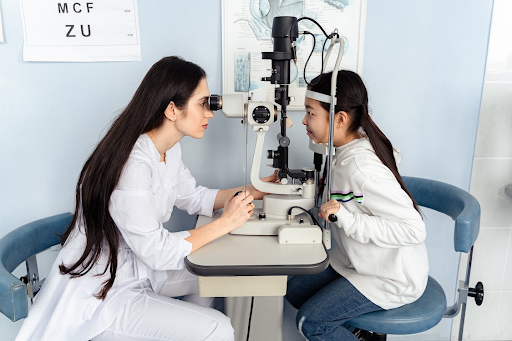What are the symptoms of endophthalmitis
Following an eye surgery or trauma, symptoms of endophthalmitis manifest quickly after infection. They normally appear within one to two days, but can potentially appear up to six days later. Symptoms include:
- Pain in the eye that increases after surgery or trauma to the eye
- Swollen eyelids
- Eye redness
- Decreased or loss of vision
- Pus from the eyes
Possible symptoms can appear up to six weeks after surgery. These symptoms are usually less severe and include the following:
-
Mild eye pain
-
Blurry vision
-
Difficulties when looking at bright lights
If you suffer from any of these symptoms, visit an ophthalmologist as soon as possible. The sooner endophthalmitis is treated, the lower the risk for ongoing and significant vision problems.
What are the causes of endophthalmitis
There are two primary categories of endophthalmitis:
Exogenous endophthalmitis is the most common type of endophthalmitis caused by an infection that originates from the outside of the body entering the eyes. Eye injuries and certain eye surgeries might be the cause of this condition.
Risk factors for exogenous endophthalmitis caused by surgery:
-
Longer surgery time
-
Extra loss of fluid behind the eye
-
Poor wound healing
Risk factors for exogenous endophthalmitis caused by eye injuries are:
-
Having the foreign object stay in your eye for an extended period
-
Having the wound treated only after 24 hours or more has passed
-
Environmental particles such as dust, soil and sand entering your eyes
-
Eye lens damage
Endogenous endophthalmitis is a form of endophthalmitis caused by an infection originating from another part of the body affecting the eye. While uncommon, this can happen if a patient has an untreated infection in their urinary tract or blood.
Diagnosis and treatment of endophthalmitis
Several tests will be conducted by an eye doctor to get a diagnosis. This includes an ultrasound which checks for foreign objects in your eye.
A vitreous tap test may be performed if the doctor suspects an infection. If an infection is confirmed, antibiotic or antifungal medication is injected directly into the eye using a tiny needle. Corticosteroids may be administered to alleviate inflammation or swelling caused by the infection.
Complications from treatment
Follow your doctor’s recommendations on eye care to reduce the risk of complications after endophthalmitis. Be sure to know when and how to apply prescribed eye drops or eye ointments. Do not miss any follow-up appointments with your eye doctor.
How do you prevent endophthalmitis?
Endophthalmitis can be prevented by:
-
Putting on eye protection before performing activities that can potentially cause eye damage. This includes activities such as sawing wood, hammering nails, sanding, etc.
-
Wearing appropriate eyewear when participating in physical activities and games
-
Carefully following doctor’s recommendations for home care after surgery.
In the event a foreign object is embedded in the eye, seek medical assistance immediately. Do not attempt to remove the object on your own to avoid further damage to their eye.
Our highly skilled team of ophthalmologists at Eyecentric, based in Bukit Tinggi Medical Centre (BTMC), delivers outstanding clinical treatments and medical diagnostics.



 – 1.png)
 – 4.png)
